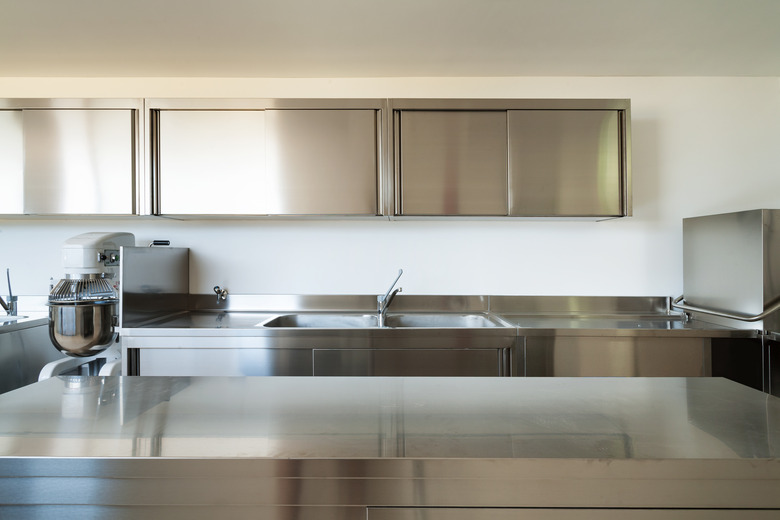302 Vs. 304 Stainless Steel
302 stainless steel and 304 stainless steel are designed for different applications. These stainless steels are made up of the same materials however, they contain different amounts of these materials.
Composition
Composition
With a slightly lower chromium content than its counterpart, 302 stainless steel consists of a maximum .15 percent carbon, 17 percent to 19 percent chromium, 8 percent to 10 percent nickel, 2 percent manganese, 1 percent silicon, .03 percent sulfur and .04 percent phosphorous. Containing the same amounts of manganese, silicon, sulfur and phosphorous as 302 stainless steel, 304 stainless steel contains a maximum of .08 percent carbon, 19 percent to 20 percent chromium and 8 percent to 12 percent nickel.
Applications
Applications
A general purposed steel, 302 stainless steel is designed to offer a greater resistance to corrosion than 301 stainless steel. Constructed with a lower percentage of carbon, 304 stainless steel is designed to limit carbide precipitation. This type of stainless steel is often used in high-temperature applications.
Durability and Strength
Durability and Strength
Both 302 and 304 stainless steels offer .29 pounds per cubic-inch density. The tensile strength of 302 and 304 stainless steels are 90,000 pounds per square inch (PSI) and 85,000 psi, respectively. Both types of stainless steel are easy to weld and create very durable welds.
Cite This Article
MLA
Leone, Jay. "302 Vs. 304 Stainless Steel" sciencing.com, https://www.sciencing.com/302-vs-304-stainless-steel-7717566/. 13 March 2018.
APA
Leone, Jay. (2018, March 13). 302 Vs. 304 Stainless Steel. sciencing.com. Retrieved from https://www.sciencing.com/302-vs-304-stainless-steel-7717566/
Chicago
Leone, Jay. 302 Vs. 304 Stainless Steel last modified March 24, 2022. https://www.sciencing.com/302-vs-304-stainless-steel-7717566/
